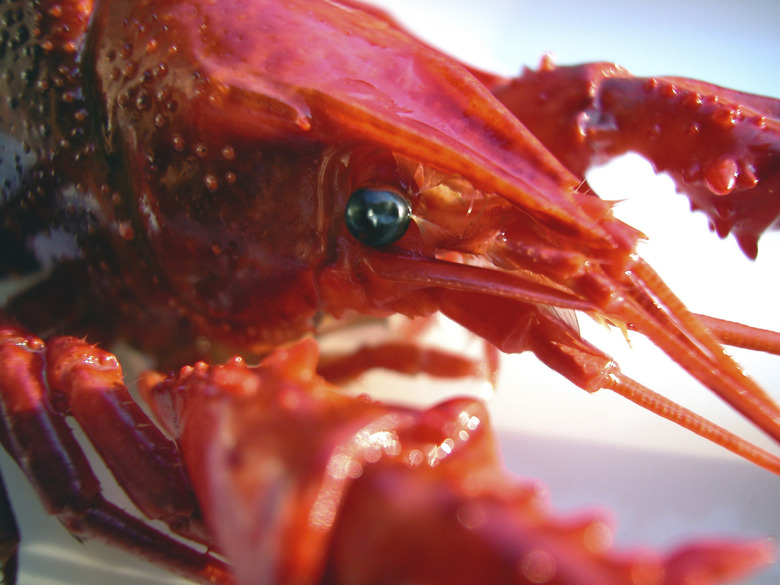How To Fish For Crayfish & Crawdads In Oregon
Crayfish, frequently referred to as crawdads, or crawfish, are crustaceans that are closely related to lobsters. They are popular delicacies, particularly in the southeastern United States, and some people enjoy keeping them as pets. Oregon only has one native species of crayfish, the signal crayfish, but several other invasive species have recently taken up residence in the state. Fishing for these animals in Oregon is a simple task that can yield a large catch.
Step 1
Choose fishing locations where crawdads are likely to be. "The Eugene Weekly" reports that the rusty crayfish, a non-native species, is well-established in John Day River. The Louisiana crayfish, another invasive species, lives in the Willamette River. Ringed crayfish reside in the Rogue River. Oregon's native species, the signal crayfish, lives throughout the state in rivers and streams. Crawdads prefer to build burrows in slow-moving rivers with sandy and rocky embankments.
Step 2
Use a fishing net to scoop up crayfish in rocky locations. Crawdads are easier to spot in rivers with rocks on the bottom and they move slowly, so nets are perfectly efficient fishing tools. Lure crawdads out of their burrows and into your net by setting out bait. Crawdads are carnivores, so hot dogs, chicken and fish are good bait choices.
Step 3
Set up a crawdad trap. Many fishing supply stores and online retailers sell traps. Set the trap out at night, when crawdads are most likely to be active. The best location to set up the trap is in a grassy, rocky or sandy location along the edge of a river. Put the trap in the shallowest part of the water and attach it to the water's edge. Place bait in the trap to lure the crayfish into it. Return to the trap in the morning and, if you've chosen a good location, it will be filled with crayfish.
Things Needed
- Crayfish trap
- Fishing net
- Bait
TL;DR (Too Long; Didn't Read)
You do not need a fishing license to catch crayfish in Oregon.
Cite This Article
MLA
Davis, Brenna. "How To Fish For Crayfish & Crawdads In Oregon" sciencing.com, https://www.sciencing.com/fish-crayfish-crawdads-oregon-8766684/. 13 March 2018.
APA
Davis, Brenna. (2018, March 13). How To Fish For Crayfish & Crawdads In Oregon. sciencing.com. Retrieved from https://www.sciencing.com/fish-crayfish-crawdads-oregon-8766684/
Chicago
Davis, Brenna. How To Fish For Crayfish & Crawdads In Oregon last modified March 24, 2022. https://www.sciencing.com/fish-crayfish-crawdads-oregon-8766684/
